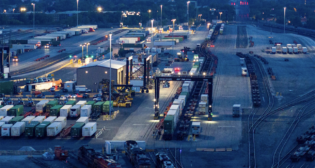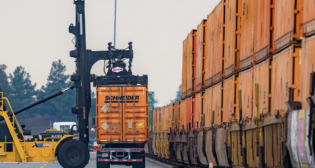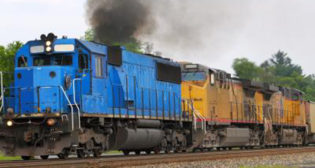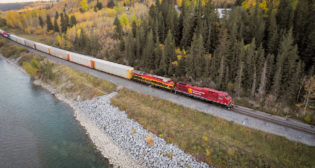
MSU rail management program promotes sustainability
Written by William C. Vantuono, Editor-in-ChiefThe Center for Railway Research and Education in the Eli Broad College of Business at Michigan State University has completed the inaugural session of a new continuing education program focused on sustainability: “Railway Motive Power and Alternative Propulsion.”
The program, attended by 11 experienced managers responsible for railway motive power and emissions reduction, was held in Long Beach, Calif. over three days. California’s focus on emissions and air quality determined the location.
“This field is developing rapidly,” said Nick Little, Director of Railway Education at MSU’s Center for Railway Research and Education. “Europe has set targets of completely phasing out diesel fuel for trains in the 2030s, and extensive research and development of alternative fuels such as batteries, natural gas and hydrogen fuel cells for road vehicles is under way.”
Little pointed to these facts about transportation and energy consumption:
- Demand for transportation is expected to grow 40% by 2045.
- Transportation is responsible for almost 30% of all energy consumed in the U.S.
- Some 92% of energy consumed for transportation is derived from petroleum.
- The transportation sector ranks 2nd in the U.S. for greenhouse gas emissions (27% and growing).
- In 2016, U.S. railroads used more than 3.4 billion gallons of diesel fuel supplying 94% of rail propulsion energy.
- Bio-fuels and electricity (largely from non-renewable sources) account for only 6% of rail propulsion energy.
- Approximately 43% of U.S. freight by volume is moved by rail.
- 87% of finished automobiles manufactured in the U.S. travel by rail for part of their delivery.
The MSU program was led by Andreas Hoffrichter, whose Ph.D. thesis “was the world’s first on hydrogen fuel cells for railway motive power applications,” Little noted. “Hoffrichter is recognized as an expert on railway adoption of alternate propulsion to minimize emissions, decrease energy consumption and reduce operating cost.”
Lectures were supported with guest subject matter expert presentations. Site visits were included to see alternate propulsion in heavy trucking, battery-powered automated guided vehicle container movers and electric cranes in the Port of Long Beach, and a manufacturer of electric streetcars that run on power systems not requiring expensive, unsightly and potentially hazardous wayside infrastructure to power the cars (such as overhead catenary or surface-mounted third rail electricity transmission).
Attendees from regulatory bodies, consulting organizations, research facilities, rail operators and suppliers to the rail industry were represented. “Feedback indicated that the program delivered much-needed new information, opportunity to network with people facing similar innovation challenges, and the chance to see emerging technologies in use,” said Little. “MSU intends to repeat the program in early 2020.”



